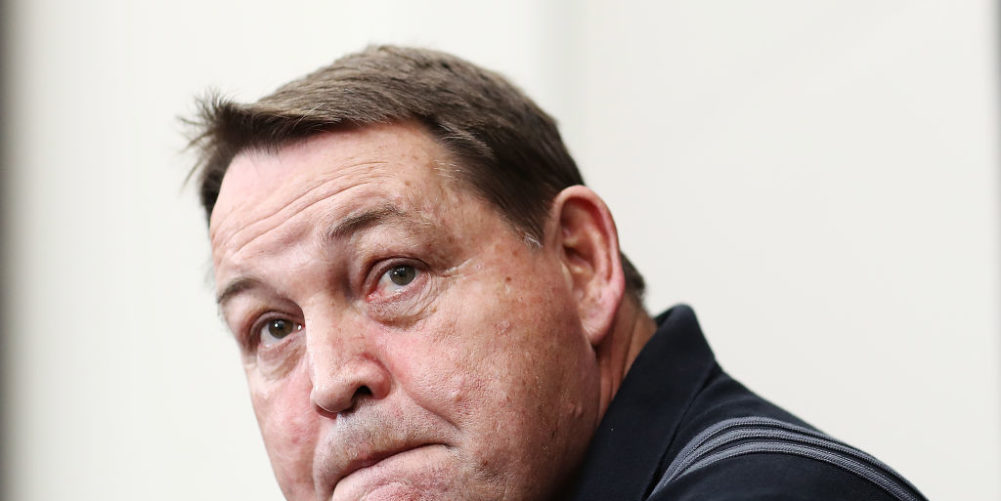Since he began running the All Blacks six years ago, Steve Hansen has won an average of nine Tests out of every ten. Moments after serving due notice to quit in Auckland on Friday morning, he said something which might have taken him back to a time and place when he lost ten out of ten: the last week of August 2003 in Cardiff.
In making the point that he stands alone among international coaches in going to the extremity of failure and success, Hansen said: “I've lost the most Tests in a row and I've also won the most in a row.''
The contrasting experiences have helped keep him on an even keel as well as hammering home the brutal reality of coaching in any code of football: “You either get the chop or choose to leave when you think the time is right.”
Rather than succumb to the temptation of delving into the losing ten during a bruising apprenticeship with Wales, he pulled himself out of it with a yuletide jolt. “Let's get excited about Christmas,'' he said with a smile. “Santa's coming.''
Had he been waiting for the man himself to put in an out-of-season appearance at the Millennium Stadium all those years ago, the course of World Cup history might have taken many different turns. The Welsh Rugby Union were beginning to show ominous signs of impatience over Hansen's losing run.
Wales in his hands had been beaten ten times out of ten in ten months, from November 2002 to the following August. They had lost to New Zealand, Italy, England, Scotland, Ireland, France, Australia, New Zealand again, Ireland and, crushingly, by England's reserves.
They had outclassed the Wales first XV 43-9 in what was the penultimate fixture for both countries before the World Cup. A melt-down rather than a warm-up prompted Hansen's employers to give him, if not an ultimatum, then an urgent message that the losing had to stop.
Wales back then had a bad habit of losing head coaches at embarrassingly short notices before World Cups (Alan Davies for Ron Waldron in 1991, Alex Evans for Davies in 1995, Graham Henry for Kevin Bowring in 1999).
Hansen's struggle to make something out of limited material raised questions as to whether he would survive long enough to lead Wales into his first World Cup in Australia two months later. The coach who would win more World Cups than any other knew that the last pre-tournament friendly, at home to Scotland, had to be won.

Gareth Llewellyn, the only British second row whose career spanned three decades, from the late Eighties to the early Noughties, played in that match as part of a 22 which included several members of the supporting cast.
“Our understanding of what happened was that David Moffett (then chief executive of the WRU) went to Steve and said: ‘You need to win this game. Your job is not safe so you need to change the team you've picked.'
“Steve made his position clear: ‘I've picked that side and that's the side I'm going to play. I am 100 per cent behind the players'.
“What I admired about him was the way he stuck to his guns. Even when he realised the consequences he didn't panic. I'm not sure whether it kept him in a job but we won and Steve hasn't looked back from that day to this.''
Three months later Wales gave England's World Cup-winners the fright of their lives during the quarter-final in Brisbane on a night when Sir Clive Woodward's knighthood would have gone for a burton had he not brought Mike Catt on at half-time to nurse an ailing Jonny Wilkinson through the rest of the game.
Hansen hasn't lost a World Cup tie since the quarter-final against France in Cardiff eleven years ago as second-in-command under Henry. “The next one will be my fifth,'' he said. “The Northern Hemisphere have really come to the party since the last one and got themselves in good nick.''
He didn't mention Ireland by name or Wales for that matter but he would have had both in mind. Should he find a familiar pot of gold waiting at the end of the road in Yokohama next year, Hansen will go down as the most successful rugby coach of all time – Sir Alex Ferguson, Pep Guardiola and Arsene Wenger rolled into one.
PETER JACKSON


























